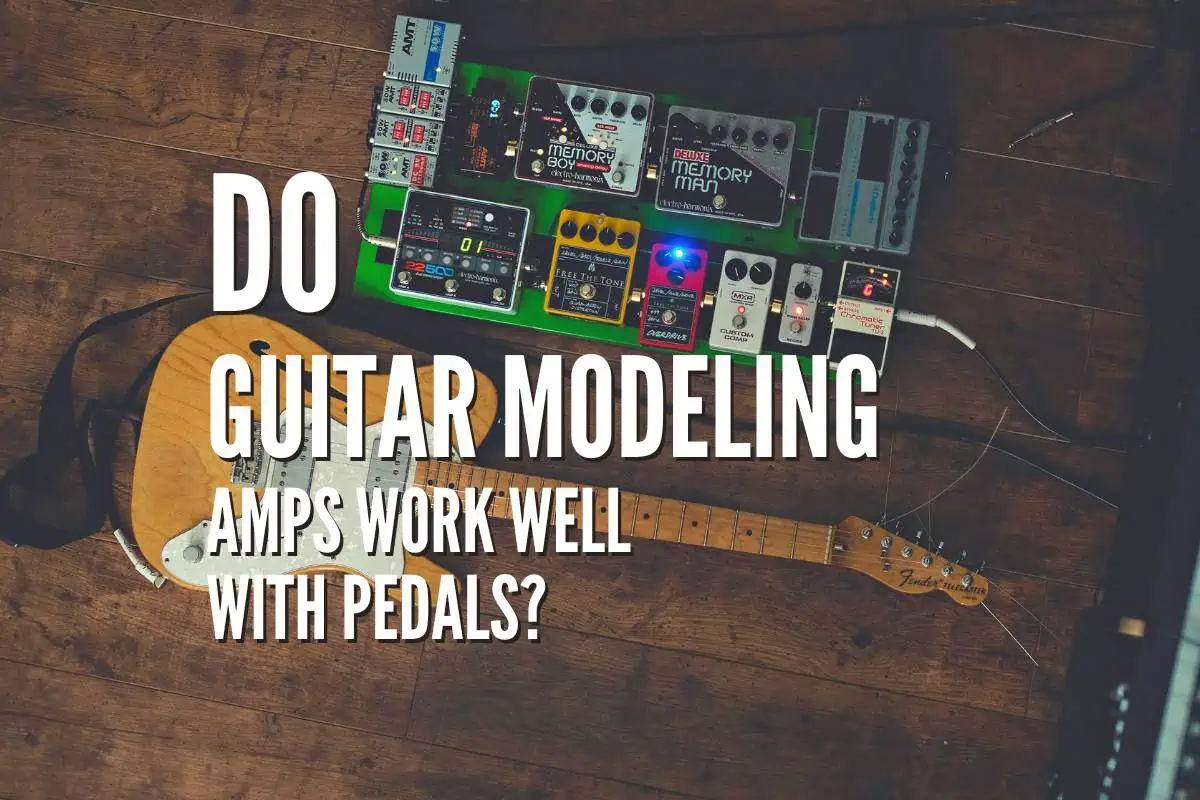Guitar modeling amps are a relatively new technology in the amp world, offering big versatility with their digital revolution. Digitally emulating different pedals, amps, cabs, and mics, modeling amps offer an incredible amount of tones, which is the reason many guitarists started to use them. However, many guitarists doubt how well these amps work with pedals.
Most digital modeling amps accept guitar pedals pretty well. Keeping the amp settings simple and creating your tone with pedals is no problem, but the end tone also depends on the chain you are plugging in. Also, you can try to combine pedals and effects in the amp, as most digital modeling amps allow for a limited number of effects used at once.
The common opinion in the guitar world says that tube amps take pedals better than any other amps, such as solid-state or modeling amps. This is down to personal taste. However, it must be taken into account that using pedals with modeling amps misses the point of having a modeling amp a bit, as the amp is designed to offer you any tone you like.
So, today, I will be discussing the harmony between the modeling amps and pedals while explaining more about the revolutionary modeling amp technology.
What are Digital Modeling Amps?
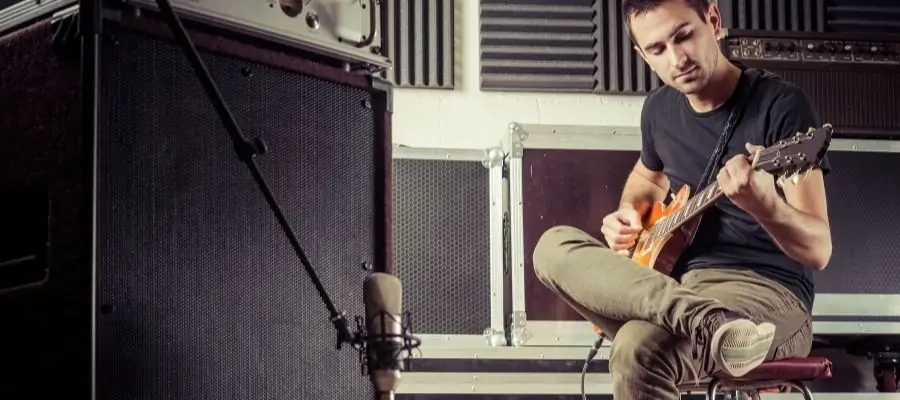
A digital modeling amp is a fully digital amp that models the sound of many different amps and effects, such as Fender Twin Reverb, Vox AC30, Marshall JCM800, Mesa Boogie, and more. Modeling amps emulate the unique sound of these amps created by different valves and analog circuitry by using digital technology.
With modeling amps, you can choose which amp tone you want and create your tone according to that. You can create anything from the sparkling cleans of Fender amps to the huge distortion of Mesa Boogie amps and everything in between. On top of amp selection and controls, modeling amps also offer different effects such as delay, reverb, flanger, chorus, and more.
So, modeling amps are some of the most versatile amps, and as technology advances, their sound and effect quality is getting higher and higher.
Can You Use Pedals With Guitar Modeling Amps?
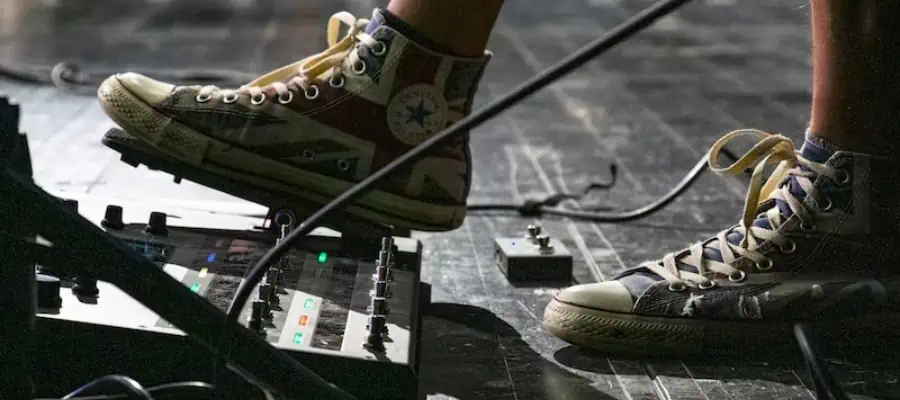
Most modern modeling amp accepts guitar pedals well as long as you keep the settings at the amp simple. If you set the amp to clean without any effect, you can use your tones from the pedals without coloring the sound that much. But this also depends on the chain you are plugging in.
Digital modeling amps come with many different built-in amp emulations and effects. So you might not need any extra pedals. However, some modeling amps have a limited number of effect choices to use simultaneously. That is where the pedals come in handy.
On the other side, there are many guitarists who share the opinion that pedals really come to life when used with tube amps. They think the tones are more realistic and dynamic compared to what you get with solid-state or modeling amps.
Why Do Some Amps Take Pedals Better Than the Others?
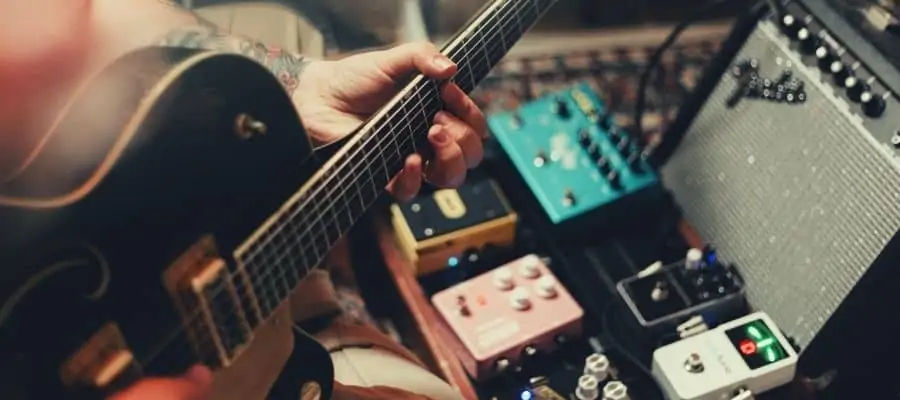
All amps respond differently to pedals because of many reasons. First of all, amps have different headroom sizes, so some amps allow for a wider range of dynamics. Second, some amps’ preamp sections are better, providing more gain and a clearer signal. Also, some amps simply have a better sound and are more compatible with pedals.
Conclusion
To summarize, you can use guitar pedals with digital modeling amps without any problem. The sound you get will depend on the amp model and your signal chain. But, with the amp set to a clean tone without any effects, you should get a pretty uncolored tone.
Digital modeling amps may not provide the dynamic range and harmonic overtones that you would get from a tube amp, but the difference is not as huge as many guitarists think. So, you can use your pedals with the digital modeling amps.
If you found this article useful, you may want to save this pin below to your Guitar board.
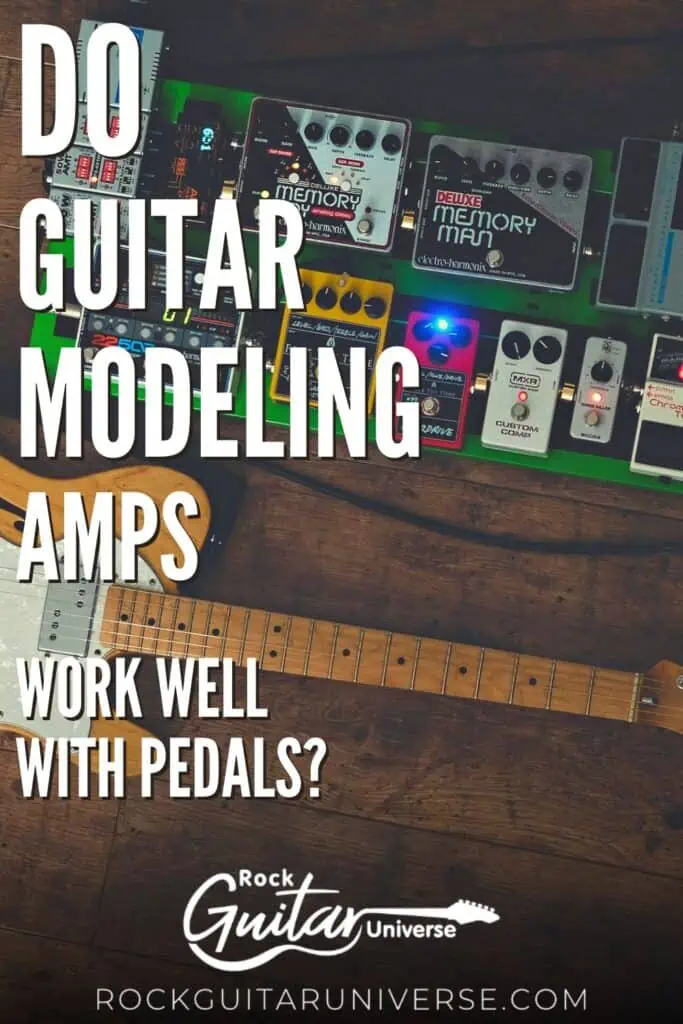
Recent Posts
Some guitarists insist on buying an expensive amplifier with their electric guitar. They assume that this is a must for every type of guitarist out there. However, in some situations, this isn’t...
Top 50 Free Realistic Guitar VST Plugins With Sound Examples
As technology has rapidly advanced in the recent decade, computers are stealing more and more roles from physical musical instruments and accessories. Nowadays, you do not need expensive amps,...

